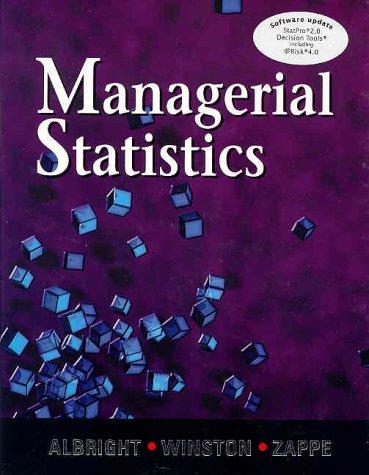Consider a frame consisting of 500 households in a middle-class neighborhood that was the recent focus of
Question:
Consider a frame consisting of 500 households in a middle-class neighborhood that was the recent focus of an economic development study conducted by the local government. Specifically, for each of the 500 households, information was gathered on each of the following variables: family size, location of the household within the neighborhood, an indication of whether those surveyed owned or rented their home, gross annual income of the first household wage earner, gross annual income of the second household wage earner (if applicable), monthly home mortgage or rent payment, average monthly expenditure on utilities, and the total indebtedness (excluding the value of a home mortgage) of the household. The data are in the file P2_6.XLS.
a. Compute the mean, median, and standard deviation of the gross annual income of the first wage earner of all households in the given frame.
b. Given that researchers have decided to stratify the given households by location within the neighborhood, choose a stratified sample of size 25 with proportional sample sizes.
c. Compute the mean, median, and standard deviation of the gross annual income of the first wage earner of the 25 households included in your stratified sample. Compare these statistics with your computed descriptive measures for the frame obtained in part a.
d. Explain how economic researchers could apply cluster sampling in selecting a sample of size 25 from this frame. What are the advantages and disadvantages of employing cluster sampling in this case?
Step by Step Answer:

Managerial Statistics
ISBN: 9780534389314
1st Edition
Authors: S. Christian Albright, Wayne L. Winston, Christopher Zappe




